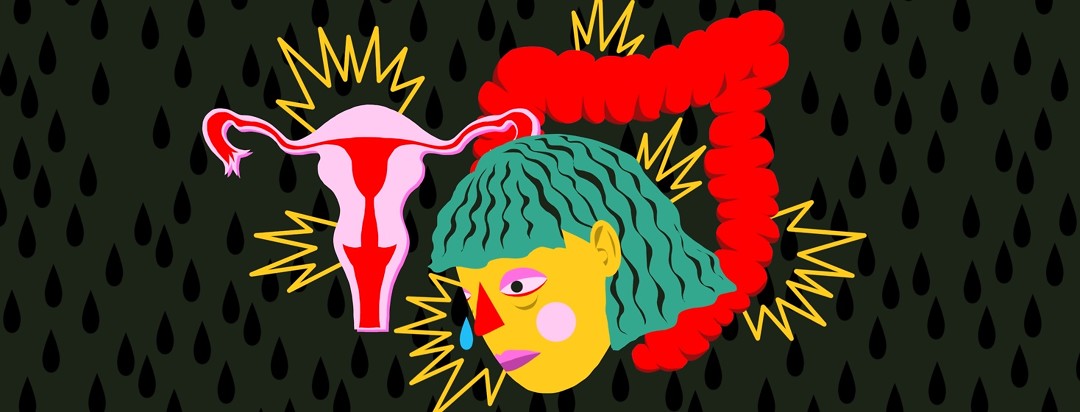The Impact of PMS on IBS
My very first post for this site explored how my diagnosis of endometriosis – a reproductive disease that often leads to very painful menstruation and many other complications – impacts my IBS. However, there is another culprit of the menstrual cycle that also seems to heavily influence my IBS on a semi-regular basis: PMS.
PMS, which stands for Premenstrual Syndrome, is the term used to describe the spectrum of symptoms menstruating people may experience in the days or weeks leading up to their periods. These symptoms can include but are not limited to, bloating and fluid retention, breast swelling and tenderness, headaches, and abdominal cramping. PMS can also often aggravate the digestive process and be culpable for symptoms such as heartburn, reflux, constipation, and diarrhea.
It is no stretch to say that my IBS is super sensitive and easily exacerbated when I have PMS. During those days, I often have to be extra strict in my diet: no alcohol, no sweets, very little gluten, very little fat or spicy foods, etc. Not only will it make the cramps and bloating worse during my period, but is more likely to lead to constipation or (more often) diarrhea.
Why does PMS provoke IBS symptoms?
One study from 2006, stated in its abstract that "women with irritable bowel syndrome often report premenstrual distress syndrome..." Of the 226 women who partook in the survey, uterine cramping was the only significant symptom that seemed worse among them in the phase of their cycles between ovulation and menstruation.1
However, I would think that worse uterine cramping could or would have an adverse effect on IBS for at least some of us; especially those with a tipped uterus. This is because a tipped uterus tends to lean on the intestines/colon cramping I would imagine when such a uterus it cramping up, it leads to more pressure on the bowels.
Another 2014 peer-reviewed article concluded the fluctuation of sex hormones during the menstrual cycle may be responsible for different responses in women with IBS compared to those without IBS.2
Hormones, PMS, and IBS
It is true that receptor cells for female sex hormones reside throughout the female gastrointestinal tract. As such, it makes sense that plunges in those hormones might affect the GI tract. And during PMS the sex hormones, especially estrogen, plummet.
More research published from 2015 concluded that hormone fluctuations of estrogen and progesterone that occur during PMS influence GI function. "Many women experience cyclical changes in GI symptomatology during their menstrual cycle, particularly alteration in their bowel habits," the authors wrote. The study also referred to an uptick in constipation as well as "Worsened GI symptoms, such as abdominal pain, bloating or diarrhea...in patients with irritable bowel syndrome... during menses."3
Do you experience an uptick in IBS symptoms when you have PMS? If so, what (if anything) has helped? Please answer in the comments below!
Community Poll
Does your IBS prevent you from attending public events?

Join the conversation